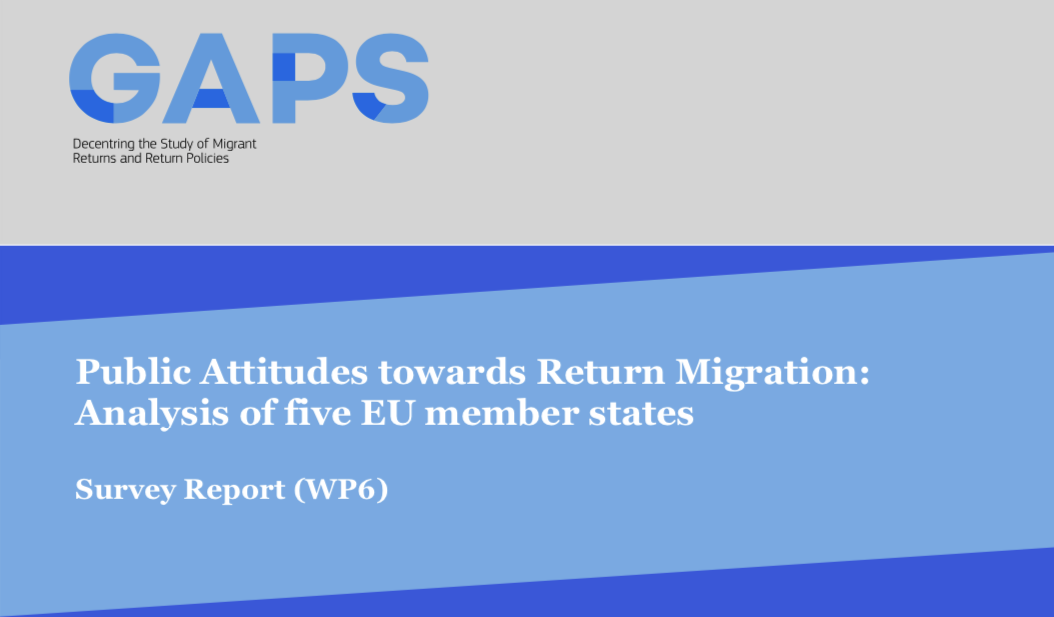Public Attitudes towards Return Migration: Analysis of five EU member states
Executive Summary:
This study investigates public attitudes toward return migration in five European countries: Germany, Greece, the Netherlands, Poland and Sweden. Using survey data, it explores perceptions of return policies, the condition under which asylum seekers should return, and the social and personal factors shaping these opinions.
Keys Findings
Agreement on return as a preferable policy: Across countries, respondents expressed general unease about the rising migrant numbers, dissatisfaction with government refuge and asylum policies, and a strong support for the deportation of irregular migrants. There was an agreement that asylum seekers should return if conditions in their home country improve, if they break the law, or if they rely heavily on public support. Return migration was seen as a way to ease pressure on social systems and- with the exception of Germany- the job market.
National Differences: Distinct differences emerged regarding refugee admission and return migration. Polish and Greek respondents were less supportive of admitting refugees initially, while German respondents highlighted economic integration and opposed returning integrated asylum seekers. German, Dutch, and Swedish participants had more contact with non-EU migrants and showed stronger trust in migrants compared to Poland and Greece.
Gender and Age: Women generally expressed more supportive attitudes towards asylum seekers, showing greater acceptance of diversity and concern for discrimination. Age had some minor effects: older participants were more opposing to return while younger participants more often saw return as a way to ease job market pressures.
Education, Income and Political Orientation: Higher education was linked to greater openness to diversity, while lower education was associated with stronger support for return. Income had a smaller effect with high-income participants showing stronger support for return. Political orientation was the most influential: right-leaning respondents held more negative views toward asylum seekers and were more supportive of return migration regardless of integration.
Migration Background and Contact: Participants with a migration background were more supportive of diversity, and more reluctant to support the return of integrated or economically contributing asylum seekers. Those without a migration background viewed return more as a way to reduce pressure on systems and create job opportunities. Personal contact, especially through friendships with migrants, similarly fostered more supportive attitudes toward diversity and reduced support for returning integrated asylum seekers.
Trust: Trusting individuals were more open to diversity, more accepting of refugees fleeing war. They were less likely to see return as beneficial or as a way to relieve pressure on social systems, and they expressed greater dissatisfaction with government performance regarding refugee policy and more concerned about discrimination faced by returnees.
Overall, the study highlights both common attitudes and important national and personal differences that shape public sentiment on return migration.
Please find the entire DOI report by clicking the button below:

